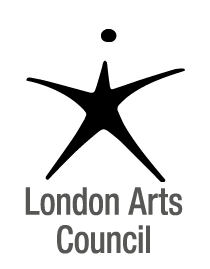Magisterra at Museum London
Beyond Borders - October 1, 2023
Program Notes by Dr. Joseph Gilbert
Alvin Etler (1913-1973)
Sonata for oboe, clarinet, and viola.
Etler was an American composer, oboist, and teacher. He taught at several universities including Yale, Cornell, Illinois and latterly at Smith College (Northampton, Mass.). During his time at Yale, in the 1930s, he was taught by Paul Hindemith (1895-1963), the German composer and violist, who had fled the Nazis, first to Turkey, then the United States. He was quite prolific contributing compositions in the Orchestral, Chambre Music and Choral genres.
The piece to be performed was written in 1945:
There are 4 movements- Slow/Fast/Slow/fast -Approximately 12 minutes long.
Hans Werner Henze (1926-2012)
S. Biagio, 9 Agosto ore 1207: A remembrance for solo double bass
This German composer was caught up in the Second World War: His father was a Nazi and Hans served in “Hitler Youth” starting at age 12. Toward the end of the War he was in the armed forces and was briefly a British POW. After the war, an intolerant atmosphere to homosexuals pushed him to live in Italy where he spent the rest of his life as a composer of opera, theatrical works, concert works and ballet music. He was very politically inclined, for example, arguing that the works of Richard Wagner should not be performed in Israel. He spent time in the US and was affected by the Civil Rights movement and anti-Vietnam War sentiment. His compositions were reactionary, and as a result, he was ostracised by his friends. He took up socialist causes but later resumed relations with both German and British musical institutions.
This 6-minute piece for solo double bass was composed in 1977. I quote the Double Bass player Edwin Barker, (July 2020) “S. Biagio, 9 Agosto ore 1207: A remembrance for solo double bass”, makes reference to the location and date regarding an event of significance to Henze.”… “I have come to understand intuitively that the piece is indeed about loss, grief, acceptance, and transcendence.”
The piece was written for bassist Dieter Lang for the Cantiere International d’Arte festival in Montepulciano Italy, where Henze was artistic director from 1976 to 1980, and refers to the Temple de San Biagio, a prominent cultural sight in Montipulciano, Italy.
Rebecca Clark (Clarke) (1886-1979)
Duo for clarinet and viola.
Clarke was born in London, later lived in the US and died in New York. She was a British-American classical composer and violist, internationally renowned as a viola virtuoso.
Clarke was taught the violin at an early age, and then was sent for further study to the Royal Academy of Music, in London. In 1908, she went to the Royal College of Music as one of Sir Charles Stanford’s first female composition students. Stanford urged her to shift over to the viola because then she would be “right in the middle of the sound and can tell how it’s all done.”
Two years later, after she quarreled with her father and had to leave the College, she began to support herself as a violist. She became a much-sought-after supply player in orchestras and ensembles around London and played chamber music with many of the greatest artists of the early twentieth century, including Schnabel, Casals, Heifetz, Thibaud, Suggia, Rubinstein, Grainger, Hess, Monteux, and Szell. She stood nearly six feet tall in her prime and, as one witness put it, “she strode on stage like a goddess.” Rubinstein called her “the glorious Rebecca Clarke.” She was one of the first women to be made regular members of a professional orchestra in London, in 1913, when Sir Henry Wood hired her for his Queen’s Hall Orchestra. She performed throughout Great Britain, Europe, and the United States, and made a round-the-world tour, as a self-styled “viola player and composer.” (From Wikipedia)
During her first American tour, she wrote one of the great extended works for viola, her Sonata of 1919: Overnight, Clarke became an international sensation,
The Sonata became a cornerstone of the viola literature, and two other compositions, the Piano Trio of 1921and Rhapsody for Piano and Cello 1923 were widely played, and by 1925 Clarke’s place among “the élite of musicians” (Morning Post) was so firmly established that she could sell out London’s Wigmore Hall with a concert made up entirely of her own compositions, and then repeat most of the program in a live broadcast from the studios of the BBC.
She gradually drifted out of the limelight and her music went out of print. But Clarke’s music was so wonderful, and her personality so attractive, that both were ideally positioned for a revival in the 1970s, when tonality again became thinkable, when a resurgent feminist movement began to stir up new interest in women composers, and when Clarke finally gave in to pleas from some of the younger members of her family and allowed her music to be organized and catalogued. By the time Clarke died, in 1979, she had enjoyed several major New York performances—her first in nearly thirty years—and an extended ninetieth-birthday broadcast. (wiki)
Duo for clarinet and viola was written in 1941 and is approximately 14 minutes in duration.
Prelude-Introduction
Allegro-A Brisk Tempo
Pastorale-simple, rural
Olivier Messiaen (1908-1992)
Messiaen was a French composer, organist, and ornithologist who was one of the major composers of the 20th century.He was born into an intellectual family in Avignon, France. He attended the Paris Conservatoire and became an organist at the Trinity Church in Paris. He was conscripted into the French army early in the Second World War, was captured and interned in a camp, which is where he composed “Le Quator…” in 1940-41. The piece was first played by Messiaen and fellow POW inmates in front of prisoners and guards. He was released from the camp. After the War, he was Professor at the Conservatoire where he had many students many of whom became famous, eg Pierre Boulez, Gilles Trembley ( Quebec), Kent Nagano (Montreal), Lalo Schifrin (Film and TV scores) among others. Messiaen performed all over the world as a pianist.
“Le Quatuor pour la fin du temps”- est une œuvre musicale en huit mouvements d'Olivier Messiaen écrite pour violon, violoncelle, clarinette et piano. Cependant, les quatre instruments ne jouent véritablement ensemble que dans quatre mouvements. The Work is in eight movements written for violin, violincello, clarinet and piano. However, the four instruments only really play together in four of the movements.
The part we will hear is the III movement titled; “Abyss of birds”; a technically difficult piece in which the clarinet mimics a blackbird.
To quote Messiaen-“The abyss is Time, with its sadness, its weariness. Birds are the opposite of Time; it is our desire for light, stars, rainbows and jubilant vocalizations!” Much of Messiaen’s compositions have a “Catholic” theme to them. Here he was inspired by the Book of Revelation of the New Testament.
—
“Le Quatuor pour la fin du temps”- Mouvement III-Approximately 7 minutes.
Sergej Prokofiev (1891-1953)
Prokofiev, a major 20th Century composer contributed works in opera, chambre music, orchestral music, instrumental music, and ballet. A graduate of the Saint Petersburg Conservatory, Prokofiev initially made his name as an iconoclastic composer-pianist, achieving notoriety with a series of dissonant and virtuosic works for his instrument, including his first two piano concertos. After the Russian Revolution of 1917, Prokofiev left Russia with the approval of Soviet People’s Commissar and resided in the United States, then Germany, then Paris, making his living as a composer, pianist and conductor. During that time, he married a Spanish singer, Carolina (Lina) Codina, with whom he had two sons; they divorced in 1947.
In the early 1930s, the Great Depression diminished opportunities for Prokofiev's ballets and operas to be staged in America and Western Europe. Prokofiev, who regarded himself as a composer foremost, resented the time taken by touring as a pianist, and increasingly turned to the Soviet Union for commissions of new music; in 1936, he finally returned to his homeland with his family. The wartime was difficult. After the War in the late 1940s, he was honoured by Stalin with many awards but later he along with other Soviet composers were denounced by Stalin.
Six artists—Shostakovich, Prokofiev, Khachaturian, Vissarion Shebalin, Gavriil Popov, and Myaskovsky,—were denounced for the crime of "formalism", described as a "renunciation of the basic principles of classical music" in favor of "muddled, nerve-racking" sounds that "turned music into cacophony".
Eight of Prokofiev's works were banned from performance: The Year 1941, Ode to the End of the War, Festive Poem, Cantata for the Thirtieth Anniversary of October, Ballad of an Unknown Boy, the 1934 piano cycle Thoughts, and Piano Sonatas Nos. 6 and 8. Such was the perceived threat behind the banning of the works that even works that had avoided censure were no longer programmed. By August 1948, Prokofiev was in severe financial straits, with a large personal debt. This was similar to Shostakovich who was a hero when he wrote patriotic/film music and a dissident when he composed other material such as some of his symphonies.
Prokofiev continued to compose for the foremost Soviet musicians e.g., Cello Concerto for Rostropovich. He died the same day as Stalin; thus he was initially not commemorated.
Quintet in g minor op39 written in 1924 for oboe, clarinet, violin, viola and double bass
Six Movements approximately 25 minutes in duration.
Tema con variazioni -Themes ad variations
Andante energico- Walking pace
Allegro sostenuto, ma con brio- Lively pace
Adagio pesante - Heavy slow
Allegro precipitato, ma non troppo presto -Fast but not too fast
Andantino-Lighter and quicker than “slow”












